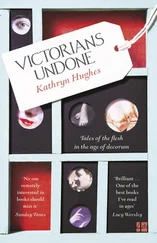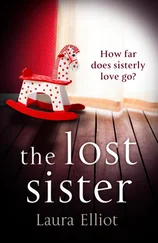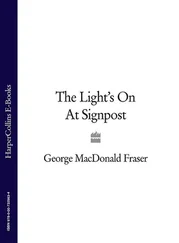First Mr Sibree himself tried to convince Mary Ann of the literal truth of the Gospels in a series of encounters so intense that Mary Ann was left shaking. 51 Next Mrs Sibree asked the Revd Francis Watts, a professor of theology from Birmingham, to try. Watts was a highly educated man with a formidable grounding in the German biblical criticism that had done so much to cast doubt on the divine authority of the Scriptures. But he too confessed himself beaten, murmuring only, ‘ She has gone into the question.’ 52
Despite the fact that the most subtle and clever men in the Midlands could not persuade Mary Ann to change her mind, on 15 May 1842 Robert Evans was able to record the end of the holy war: ‘Went to Trinity Church. Mary Ann went with me to day.’ 53 On the surface it seemed as if Mary Ann had done the very thing she had declared she would not – compromised her convictions for the sake of social respectability. But it was, as she began to see for the first time in her life, more complicated than that. Agreeing to attend church while keeping her own counsel involved giving up the glamour and notoriety of the past few months. At the height of the holy war she had written a letter to Maria Lewis in which she spoke of her realisation that the martyr is motivated by the same egotistical impulse as the court sycophant. 54 It was gradually dawning on her that her high-minded rebellion had been fuelled by her old enemy, Ambition.
A month or so later there was another suggestion, this time in a letter written to Mrs Pears from Griff, that Mary Ann no longer believed herself fully justified in the actions she had taken: ‘on a retrospection of the past month, I regret nothing so much as my own impetuosity both of feeling and judging’. 55 It was a conclusion which was to stay with her for the rest of her life, for decades later she told John Cross that ‘although she did not think she had been to blame, few things had occasioned her more regret than this temporary collision with her father, which might, she thought, have been avoided by a little management’. 56
It was not that she believed her commitment to seek God outside a formal structure was mistaken, simply that she began to realise that she had other obligations no less important. Her needs as an individual had to be balanced against her duties as a daughter. Ultimately, what sustained humanity was not adhering blindly to a theory, political belief or religious practice, but the ties of feeling which bound one imperfect person to another. She would not give up her new beliefs for the sake of respectability, but she would forgo the glamour of shouting them from the roof-tops. She would endure people thinking that she had fudged her integrity if it meant that she could stay with the beloved father whom she had so deeply hurt. Far from giving up the authority of private conscience, she was stripping it of all its worldly rewards, including the glamour of being thought a martyr.
Eighteen months later, in October 1843, Mary Ann wrote out her fullest statement on the matter in the form of a letter to Sara Hennell, Cara’s elder sister, who had since become her best friend. By now she had had time to absorb and reflect upon the turbulence and pain of the holy war. Her personal feelings of regret had been broadened into the kind of generalised observation on human nature which would come to typify the wise, tolerant narrative voice of her novels. ‘The first impulse of a young and ingenuous mind is to withhold the slightest sanction from all that contains even a mixture of supposed error. When the soul is just liberated from the wretched giant’s bed of dogmas on which it has been racked and stretched ever since it began to think there is a feeling of exultation and strong hope.’ This soul, continues Mary Ann, believes that its new state of spiritual awareness more than compensates for the old world of error and confusion left behind. What’s more, it is determined to spread the good news by proselytising to all and sundry. A year or two on, however, and the situation appears quite different. ‘Speculative truth begins to appear but a shadow of individual minds, agreement between intellects seems unattainable, and we turn to the truth of feeling as the only universal bond of union. We find that the intellectual errors which we once fancied were a mere incrustation have grown into the living body and that we cannot in the majority of causes, wrench them away without destroying vitality.’ Finally she broadens her argument, linking her own experience within the Evans family to a model of the world at large.
The results of non-conformity in a family are just an epitome of what happens on a larger scale in the world. An influential member chooses to omit an observance which in the minds of all the rest is associated with what is highest and most venerable. He cannot make his reasons intelligible, and so his conduct is regarded as a relaxation of the hold that moral ties had on him previously. The rest are infected with the disease they imagine in him; all the screws by which order was maintained are loosened, and in more than one case a person’s happiness may be ruined by the confusion of ideas which took the form of principles. 57
The conclusions Mary Ann drew from the holy war prepared the way for her response to the difficult situation, fifteen years later, of being the unmarried ‘wife’ of George Henry Lewes. Living outside the law, she was socially ostracised in the same way Robert Evans feared would result from her non-attendance at church. However, much to the chagrin of her feminist friends, she refused to be known by her single name and insisted on being called ‘Mrs Lewes’. She steered clear of giving support to a whole cluster of causes, including female suffrage, which might be supposed to be dear to the heart of a woman who had shocked convention by living with a man outside wedlock. This fundamental separation of private conscience from public behaviour was the founding point of Eliot’s social conservatism. The fact that she loved a married man might authorise her own decision to live with him, but it could never justify a wider reorganisation of public morality. Family and community remained the best place for nurturing the individual moral self. Social change must come gradually and only after a thousand individuals had slightly widened their perceptions of how to live, bending the shape of public life to suit its new will. Revolution, liberation and upheaval were to have no place in Mary Ann’s moral world.
Nor did they have any in her fiction. George Eliot’s heroes and heroines may struggle against their small-minded communities, but in the course of their lives they learn that true heroism entails giving up the glory of conflict. Reconciliation with what previously seemed petty is the way that leads to moral growth. Romola, fleeing from her unfaithful husband Tito, is turned around in the road by Savonarola and sent back to achieve some kind of reconciliation. Maggie, too, returns to St Ogg’s after she has fled with Stephen and submits to the censure of the prurient townspeople. Dorothea’s fantasies of greatness end up in the low-key usefulness of becoming an MP’s wife.
The holy war cast a long spell not only over the fictions Mary Ann was to write, but over the intimate details of her daily life. None of her relationships would ever be quite the same again. On the surface, her friendship with Maria Lewis continued much as before. The first few letters of 1842 are lighter because more truthful. However, soon the correspondence starts to fail, spluttering on fitfully until Robert Evans’s death in 1849, but with a notable lack of candour on Mary Ann’s part. In a letter of 27 May she politely declares herself ‘anxious’ about whether Maria plans to visit, but prepares herself for the fact that Maria may be too ‘busy’ to reply immediately. 58 What Mary Ann had perhaps not fully recognised was that Maria was lonely and reluctant to give up her friendship with a family which had so often provided her with a home during the holidays. In fact, Maria continued to visit Foleshill over the next few years, but there was an increasing sense that she was visiting the whole family (she had, after all, taught Chrissey too) and not just Mary Ann. And there are signs that Mary Ann found these visits an increasing chore. In a letter of 3 January 1847 Cara wrote to her sister Sara, ‘[Mary Ann] is going to have a stupid Miss Lewis visitor for a fortnight, which will keep her at home.’ 59 The nastiness of the tone is a surprise – Cara was a sweet-natured woman not inclined to hand out easy snubs. More than likely she was repeating what she had heard Mary Ann say of the squinting, pious, middle-aged schoolmistress who refused to realise that she was no longer wanted.
Читать дальше












